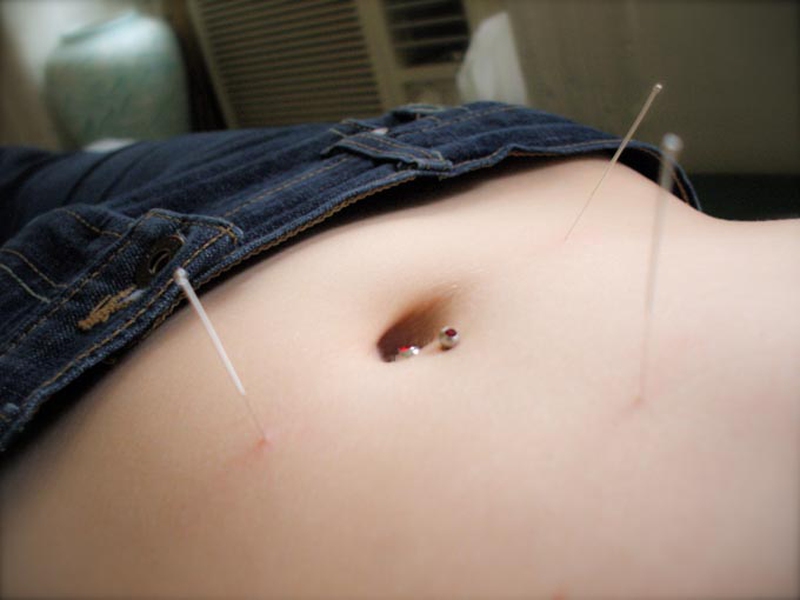Many people take bodily functions such as bowel movements for granted. The reason for this is probably because they are an instinctive trait. Nobody taught you how to do it, and it’s usually effortless when it happens … well, until there’s a problem. Bowel movements that do not come often enough or come too frequently can cause discomfort, bloating and interfere with the body’s ability to absorb the required nutrients. While your colon is meant to collect and hold waste, it designed to do so only for a while. It is, therefore, important to empty your bowels regularly otherwise it begins to look like a backed-up sewer. Below are tips on how to stimulate bowel movement.

Ways to Stimulate Bowel Movement
Eat a Fiber Rich Diet
To keep digestion regular and prevent constipation, you should make a conscious effort to include fiber rich foods in your diet. Soluble fiber enables more water to remain in your stool. This makes it softer and easier to pass through the intestines. Insoluble fiber helps add some bulk to your stool which hastens its passage through the gut and averts constipation. Avoid too much fiber in a single meal as it can cause diarrhea. Here are some fiber rich foods you can include in your diet - avocados, berries, peas, black beans, chickpeas, lentils, nuts, chia seeds, flax seeds and quinoa.
Ensure Enough Water Intake
Wondering how to stimulate bowel movement the easy way? Stay hydrated. Most bowel movement complications are as a result of constipation, which occurs when stool is too dry to move through the body. Drink plenty of water as you go about your daily activities. 8 – 10 glasses of water a day will do you a lot of good.
Massage
A study by UCLS suggests that massaging the perineum area (between your anus and genitals) can help soften and break up stool when you’re constipated. Massaging the lower belly can also have the same effect. Do not use this method during pregnancy or when there is a medical reason for not doing so.
Exercise Regularly
Constipation becomes more frequent as you age. This is particularly more common in women than men. You don’t need to have a comprehensive workout regimen. Walking daily for about 10 to 15 minutes can help maintain regular bowel movement. Jogging, running, swimming and yoga can help a great deal.
Change Toilet Habits
Your habits in the toilet can have an impact on the ease with which you pass stool and increase the risk of pelvic and bowel problems. Modern toilets are designed to place your knees at a right angle to your body. However, the squat position is the most recommended for passing stool. It optimizes the forces involved in pushing stool out of your body. This position straightens the rectum and helps relax the puborectalis muscle, making defecation a less strenuous process. To make it easier to poop in this position using a modern toilet, use a stool to prop up your feet such that your knees are as close as possible to your chest.
Consider Digestive Enzymes
If you eat a meal that is difficult to digest, you can take a digestive enzyme to help with the breakdown of the food. Digestive enzymes accelerate the breakdown process of food to make it pass through the colon faster.
Maintain Adequate Sleep
Melatonin, a hormone that is produced in the body when you sleep in a dark room, can stimulate intestinal activity. Staying up late reduces the levels of melatonin in your body. Staring at the screen of your computer or mobile phone before bedtime has also been shown to reduce melatonin levels. If you want to maintain regular bowel movement, sleep early and remember to turn off the lights.
Make a Natural Laxative
Wondering how to stimulate bowel movement naturally? How about a natural laxative? You can use molasses (about 1/3 of a cup), 8 ounces of juiced zucchini or about 6000mg of Vitamin C taken at a go. You can add two teaspoons on calcium magnesium gluconate to make it even more potent.
Take Probiotics
Probiotics helps protect the colon against alterations of gut functions caused by stress. By taking probiotics, you help keep your intestinal barrier strong by reducing altered gut permeability. They can stop leaky gut syndrome whereby gaps form on the wall of the intestines allowing miniscule food particles to escape into your blood. They also help stimulate bowel movement.
Try Traditional Chinese Therapy
Acupuncture combined with a Chinese therapy called moxibustion can help with constipation. Research indicates that this combination does a better job at dealing with constipation than ordinary medication. While there’s still more research to be done, the procedure looks promising.
Castor Oil
Castor oil can help stimulate bowel movement. It helps lubricate your intestines to allow stool to slip out more easily. While castor oil is considered safe for human consumption, you should consult with your doctor before taking some especially if you suffer from intestinal blockage or appendicitis. You should also avoid taking too much as an overdose can cause dizziness, abdominal cramps, nausea, fainting, shortness of breath and chest pain. You should also avoid castor oil if you’re pregnant.
How to Stimulate Bowel Movement – What to Avoid
Processed Foods
Foods that contain artificial sweeteners, MSG, chemical additives, excessive amounts of caffeine can all be detrimental to the gastrointestinal function. You should also avoid enriched grains, white bread, pastas, pastries, breakfast cereals, foods with high levels of sugar and fat, sausages, red meat, potato chips and French fries.
Medications
Steer clear of medications such as antacids, iron supplements and blood pressure medications as they can worsen constipation.
Dairy Products
Dairy products and cheese contain lactose, which many people react to. Lactose can cause bloating, gas and constipation. Yoghurt is the only exception to this rule, especially if it contains probiotics such as Bifidobacterium animalis or Bifidobacterium longum.
Reliance on Laxatives
You should avoid overusing laxatives. You can easily become dependent on them. Avoid using them every day. Consult with your doctor on the best laxative to use if you have chronic constipation. Those containing polyethylene glycol should be prescribed for long term use.



View All Comments /Add Comment